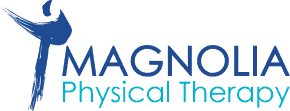When a person suffers from arthritis, particularly in a weight-bearing joint like the knee or hip, taking an opioid painkiller for relief can be a powerful temptation. The bad news is that while an opioid can temporarily relieve pain, the patient’s bones continue to grind together, making the underlying cause of the condition even worse. And that’s even before you consider the addictive qualities of opioids. Rather than turning to opioids for your arthritis, consider the chemical-free alternative to arthritis pain: Physical therapy. Call our office to learn more about how working with a physical therapist can relieve your arthritis symptoms.
Arthritis Symptoms
Arthritis symptoms can be managed with the help of physical therapy. Some of the most common symptoms that arthritis sufferers have to deal with include:
- Pain: Arthritic joints may hurt during or after physical movement.
- Joint Stiffness and Aches: The joints are especially stiff upon waking and may feel sensitive or painful when touched.
- Lost Mobility: An arthritic joint can restrict your range of motion, to the point where you are unable to carry out daily tasks like you used to.
- Grinding Sensation: Arthritis is a result of lost cartilage, the material in the joints which acts as a cushion and lubricant between bones. The loss of cartilage can make it feel as if the patient’s bones are grinding together when they move.
- Swollen Tissues: The pain and inflammation associated with arthritis can cause tissue swelling near the impacted joint. The area surrounding the joint might feel warm to the touch.
Physical Therapy for Arthritis Pain
If you have been diagnosed with arthritis, you can work with a physical therapist to learn strategies that will help you manage your symptoms, without having to resort to painkillers. During your first appointment, be prepared to talk about your medical history with your therapist. You will be asked to describe your symptoms and how they impact your daily life. For example, does your arthritis prevent you from reaching things on a high shelf, walking up and down stairs, and so on. During your first appointment, your physical therapist will likely have you do a few simple tests. The tests will vary based on which joints are suffering from arthritis. In general, expect to be tested on your range of motion in the impacted joints, as well as your strength and balance. These tests will be used to determine how far the arthritis has advanced, and to assist the physical therapist in crafting the best possible plan of treatment for you. Manual therapy will likely be a part of the treatment strategy for managing your arthritis. This specialized type of therapeutic massage not only relieves stiffness and pain in arthritic joints, but can also help to loosen tissues up and extend your range of motion. All licensed physical therapists are trained in the use of manual therapy for arthritis. Body mechanics will be another part of your arthritis treatment. Your physical therapist will teach you the proper way to carry out daily activities with minimal impact on your arthritic joints. This helps to prevent the grinding sensation and helps prevent the arthritis condition from worsening. Exercise and weight management may also be a part of your course of physical therapy. Depending on the location of your arthritis, your therapist might recommend aquatic exercise in a pool for joint relief (as one possible example). The goal will be to increase your strength so that muscle structures can bear your weight better, without putting undue strain on arthritic joints. Physical therapy can help you manage the pain of arthritis without turning to powerful opioids or other painkillers. Call our office today to schedule your first appointment with a licensed physical therapist.

